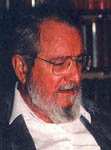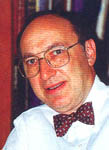’97 Dig Opportunities
000
1988 Excavation Opportunities
1990 Excavation Opportunities
1991 Excavation Opportunities
1993 Excavation Opportunities
1994 Excavation Opportunities
1996 Excavation Opportunities
2006 Digs
A Guide to ’98 Digs: The Volunteer's View
Akeldama
Alter vs. Kugel
An Odyssey Debate
Ancient Musical Instruments
Assessing the Jehoash Inscription
BAR's 20th Anniversary
BAR's Tenth Anniversary Section
BAR’s 20th Anniversary
Battle Over Bones
Battle Over Jericho Heats Up
Battling Over the Jesus Seminar
Caesarea: Herod and Beyond
David’s Jerusalem: Fiction or Reality?
Dead Sea Scrolls
Dead Sea Scrolls Research Council: Fragments
Dead Sea Scrolls Update
Defusing Pseudo-Scholarship
Different Interpretations
Dig 2004
Dig In: A Guide to ’99 Digs
Digs 2000
Digs 2001
Digs 2002
Digs 2003
Digs 2005
Digs 2007
Digs 2010
Digs 2015
Digs and Digging 1980
East Meets West: The Uncanny Parallels in the Lives of Buddha and Jesus
Ecclesiastes
Elba Update
Elgin Marbles Debate
Excavation Opportunities 1985
Excavation Opportunities 1986
Excavation Opportunities 1989
Excavation Opportunities 1995
Forgotten Kingdom
Frank Moore Cross—An Interview
Has Richard Friedman Really Discovered a Long-Hidden Book in the Bible?
In Private Hands
Israel Comes to Canaan
Israel Underground
Issue 200
James
Jerusalem 3
Jerusalem Explores and Preserves Its Past
Jerusalem Update
Jerusalem’s Underground Water Systems
Jonah and the Whale
Megiddo Stables or Storehouses?
Michelangelo’s Sistine Ceiling
New Directions In Dead Sea Scroll Research
One if by Sea…Two if by Land: How Did the Philistines Get to Canaan?
Ossuary Update
Pilate in the Dock
Point/Counterpoint: Pros and Cons of the Contemporary English Version
Portraits In Heroism
Questioning Masada
Qumran
Redating the Exodus—The Debate Goes On
Remembering Ugarit
Rewriting Jerusalem History
Riches at Ein Yael
Roman Jerusalem
Scholars Disagree: Can You Name the Panel with the Israelites?
Sea Peoples Saga
Should the Bible Be Taught in Public Schools?
Special Bible Section
Spotlight on Sepphoris
Sumer
Supporting Roles
Temple Mount
Temple Scroll Revisited
The Age of BAR
The Amman Citadel: An Archaeological Biography
The Babylonian Gap Revisited
The Bible Code: Cracked and Crumbling
the Brother of Jesus
The Dead Sea Scrolls
The God-Fearers: Did They Exist?
The Jacob Cycle in Genesis
The Minoans of Crete: Europe’s Oldest Civilization
The Most Original Bible Text: How to Get There
The Pools of Sepphoris: Ritual Baths or Bathtubs?
The Search for History in the Bible
What Was Qumran?
Where Was Jesus Born?
Where Was the Temple?
Who Invented the Alphabet
Introduction



I began the interview in his Lexington, Massachusetts home by asking Professor Cross if he recognized the following quotation:
“The whole of the ancient Near East has been his bailiwick—its geography and archaeology, its languages and literature, its history and religion. I suspect that he is the last…generalist with the specialist’s precision in designated areas of Egyptian, Mesopotamian, Anatolian and Syro-Palestinian studies…Each of the great discoveries in the Near East has galvanized [him] with excitement and he has been found regularly in the forefront of those who endeavored to interpret the new data and to build new synthesis comprehending the new evidence.”
He immediately recognized the quotation. These were his own words in a 1970 tribute he had written to the great biblical archaeologist William Foxwell Albright.1
I told him these words reminded me of another great scholar—himself. I went on to describe him:
“You are certainly one of the world’s leading epigraphers. You read and decipher an ancient text better than almost anyone. You can date an inscription by the shape and stance of the letters. You know a dozen ancient languages and dialects. You are a leading historian of the biblical period. You are an expert in the development of the biblical canon. You have explained the creation of the alphabet. You are a historian of religion. You are an authority on ancient cultures. You’re a historical geographer. In your time, you have done archaeology on both land and sea—and under water. You are a leading authority on the Dead Sea Scrolls. In fact, you are an expert in almost everything over a period of 2,000 years. You hold the third oldest endowed academic chair in the country, the Hancock Professor of Hebrew and Other Oriental Languages at Harvard.”
Cross rejected the comparison to Albright:
“You compare me to Albright, but I have remarkably narrowed the sphere in which he operated. I work in cuneiform some, but I am not a cuneiformist; he was. I once could read Egyptian. I have not worked in Egyptian for 40 years. If I have to decipher a place name or person in Egyptian, I can do that. But I don’t read Egyptian texts, as did Albright. I don’t read Hittite, as did Albright. I don’t know Sanskrit, as did Albright. My Berber is terrible; Albright’s was excellent. I could go on. I have limited myself to a much more restricted range.”
But then Cross deflected the conversation. Had I seen the recent autobiographical reflections of Hebrew University professor Benjamin Mazar, the elderly doyen of Israeli archaeologists? Cross then went on to praise Mazar and explained that not only Albright, but also Mazar was his teacher. Mazar had remarked how Albright had inspired and “galvanized” him. Although Cross was Albright’s student, he also wanted me to understand that, while not formally, he regarded himself as a student of Mazar’s as well. Mazar had inspired him too—in ways that Albright had not:
“My relationship over the years with Mazar has been very intimate and I have often spoken of him as my teacher. In many ways, Mazar was a better pedagogue than Albright. Mazar is at his best in a seminar, in a discussion face to face. Albright was very difficult one to one. With Albright you could not get across one of your ideas before he was lecturing to you. As a student, I found the only way I could persuade Albright of an idea of mine—or to get an article past him for publication—was not to go to discuss it with him, but to hand it to him, completely written, leave and let him look at it.”
Cross retired in May 1992, shortly after our interview. I asked him whether he felt a sense of satisfaction or of frustration at his pending retirement. He replied:
“My students have given me the greatest pleasure. I have always had the view that the first task of a scholar is to pass knowledge and understanding of method and the tools of the field from one generation to the next. To lead students into the forefront of the field is a very exciting venture. I have now directed over 100 doctoral dissertations at Harvard.
“I have been somewhat frustrated not to have had more time for writing and research. But I have elected to give teaching priority and, when I am thinking straight, I like that priority. I chose it and would do so again.”
We also spoke of the pressures to specialize in light of the knowledge explosion:
“I think you lose more by being a narrow specialist,” he said, “though you’re safe and secure in your little niche, than you do by the riskiness of some breadth. For the generalist, there is the possibility of synthesis, of seeing aspects that the specialist cannot see.
“I don’t like the narrowing of biblical scholars into a theological frame in the Protestant tradition. And I don’t like the narrowing of archaeologists into technicians, which is a tendency in Israel I deplore—and which Mazar deplores, by the way. I don’t like the narrowing of biblical studies into literary analysis. I am not talking about old-fashioned literary criticism but the new literary analysis in which you don’t need to know historical linguistics, you don’t have to read history, you don’t have to know anything, except a little bit of literary theory. Any cutting off the air of other fields and other perspectives troubles me.
“I know that the amount of lore in Mesopotamian studies is so large that now you specialize in Assyriology or in Sumerology or in the Neo-Assyrian period as against the Old Babylonian period. These specialties have been pressed on us by the sheer amount of material that exists. The archaeologist too feels the same sort of pressure. The narrow specialist who knows Middle Bronze I exceedingly well restricts himself ultimately from seeing any relationship between archaeology and history. Archaeology in a historical period must interact with history.”
I asked him how he advises his students with regard to specialization:
“The training should be like law or medicine, where you study a little bit of everything in law school or medical school, and you also specialize. I think a biblical scholar or a semitist should have broad training in a whole group of these languages and particularly comparative Semitic philology and the history of the Hebrew language or, if you’re a Mesopotamian scholar, the history of the East Semitic group of languages. You should do enough archaeology to be able to read archaeological literature critically. You should know enough ancient history so that you’re not lost. You should be able to check a cuneiform text if you have to. In short, you should not be restricted if you have to move in another direction. If it turns out that you have to publish scrolls from Qumran, you should have enough training in Greek so that you can bring your Greek up to the point of using it in textual criticism.
“Then, inevitably, you specialize. But you have to have the necessary equipment, the necessary languages and the necessary tools, the necessary historiographic theory to operate. Otherwise, it seems to me, you are constantly at the mercy of the secondary literature. You control nothing on your own. I don’t like what comes out of that: You continue old paradigms that are antiquated.”
Then we began to talk about the Bible and biblical history.
